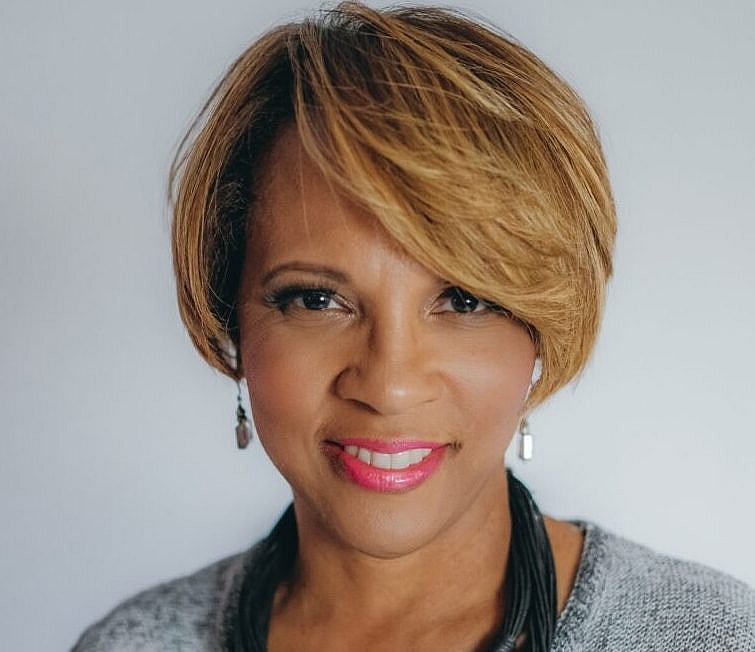The demise of Black-owned OZY Media and the subsequent scandal surrounding OZY Media founder Carlos Watson, a Black man, who had successfully built the media platform over the past eight years is both tragic and predictable all at once.
OZY was an American media and entertainment company launched in September 2013 by Watson and his investor partner Samir Rao. It was headquartered in Mountain View, California, with additional offices in New York City. OZY was a producer of podcasts, YouTube content and television series as well as social media and in-person events.
Prior to its sudden and abrupt fall, the OZY media platform was growing and attracting big name talent like former BBC Anchor Katty Kay and staff talent from various platforms in Hollywood and Washington, D.C. It seemed to be a company on the move. And with a billionaire chairman of its board at the helm, they seemed poised to become a major media and entertainment group. That chairman, Marc Lasry, and Kay have now resigned very publicly from the company as have others, with senior staff vowing not to return.
This whole brouhaha started with a damaging New York Times story a couple of weeks ago also alleging that OZY’s chief operating officer and co-founder, Samir Rao, impersonated a YouTube executive on a call with Goldman Sachs that was specifically for them to raise money from the investment bank. Rao, after the story broke said he had mental health issues. For their part, OZY has said it had raised investment capital of up to $70 million from investors as of late 2019. OZY had long been suspected of likely inflating its audience size to gain investors.

In a recent interview, Carlos Watson claimed as late as two weeks ago that OZY had 25 million subscribers to its email newsletter and 30 million YouTube views. The New York Times, which broke the story and has an audience of 15 million newsletter readers, countered this information and said that in fact OZY had fewer than 500,000 subscribers in June and July, according to Comscore data. Worse, according to news reports, OZY allegedly paid for its audience rather than building a substantive and verifiable database of readers and viewers.
On Tuesday, OZY Media was sued by one of its investors, Lifeline Legacy Holdings for $2.2 Million. The Beverly Hills firm first made an investment in February 2021 for $2 million after both Watson and Rao approached them for financial support. OZY was able to secure the investment based on the caveat that Goldman Sachs was “positioned to make a substantial investment” in the fledgling platform. And in May 2021, Lifeline made another $250,000 after being told Alphabet was going to invest $30 million.
After all of this the Board of Directors announced last week that OZY was shutting down, they let their employees know on a call last week only to be reversed by founder Carlos Watson in national media publications and appearances.
This is where the tragedy begins in my book.
Maybe brother Watson didn’t get the memo that Black people who make professional mistakes of this proportion rarely get second chances. We don’t get to “fail up” like so many white men and women, who ruin companies and get big cashouts, and then get hired at another company. Former CNN anchor, award winning journalist and media superstar Soledad O’Brien called this out in a Twitter post that made the point that OZY’s troubles were an open secret, and that it impacts other Black companies who are not peddling lies and fake subscribers.
This story is still developing but Watson is dreaming if he thinks he will be able to just open back up to business as usual. It’s the stereotype that comes back to haunt us all: That Black men can’t be trusted. They are always trying to get over. They are criminals. They are not honest brokers. All of that and more. Carlos is a bright Black man who was on his way, but he was cutting corners and allowing some shady practices to go on at his company. Those practices caught up with him.
Yes, of course, the white boys do it all the time. But as our grandmothers told us all, “you have to be twice as good.” In no world does this work out well for him and those who trusted in him and his vision. I suspect the lawsuit filed today is just the first of many. They will make an example of him. A big one. And it will impact Black entrepreneurs’ ability to get investment dollars and start up support. That is really the tragedy in this all.
In 2021, and there are under ten major Black-owned successful media platforms (TheGrio, TV One/Radio One, Black Enterprise, Essence and a few others). What does that say considering how many Black people are in the news, entertainment industry? I think in the question, lies the answer — we have to do better. We have to be ‘twice as good,’ we have to do good business deals, partner with ethical people and be transparent with our business platforms.
To do less or cut corners, not only destroys our own goals and possibilities but severely hurts the chances of others watching our example who want to build successful public businesses themselves.

Sophia A. Nelson is a contributing editor for theGrio. Nelson is a TV commentator and is the author of “The Woman Code: Powerful Keys to Unlock,” “Black Women Redefined.”
Have you subscribed to theGrio’s “Dear Culture” podcast? Download our newest episodes now!
TheGrio is now on Apple TV, Amazon Fire and Roku. Download theGrio.com today!


